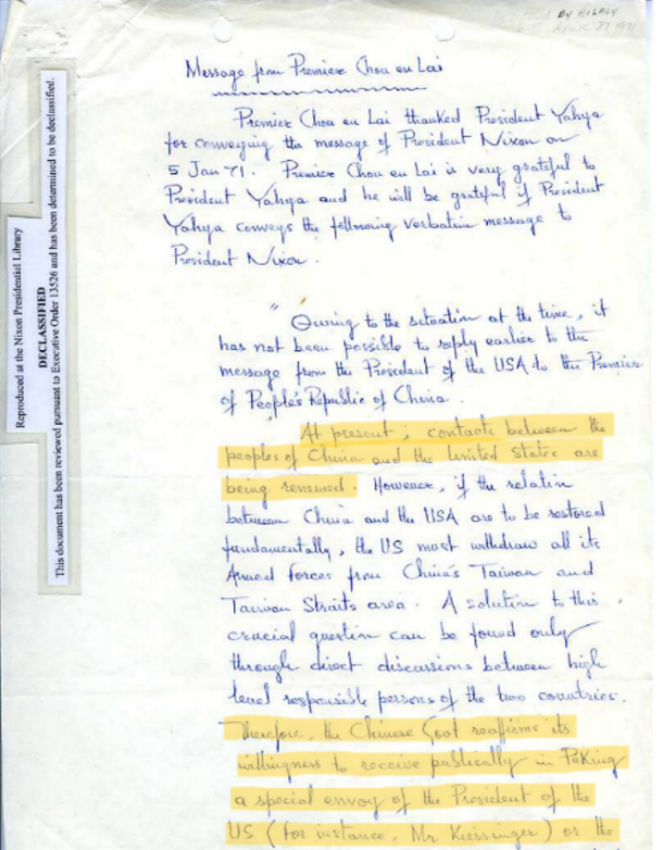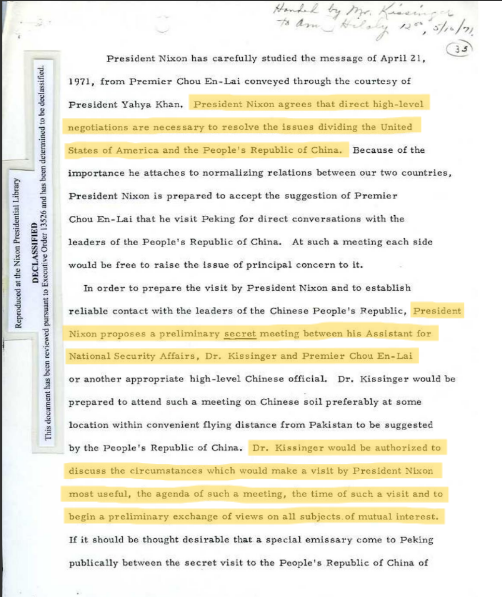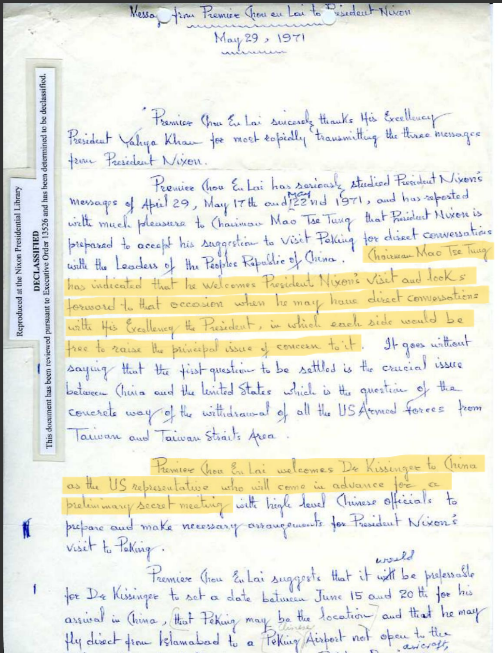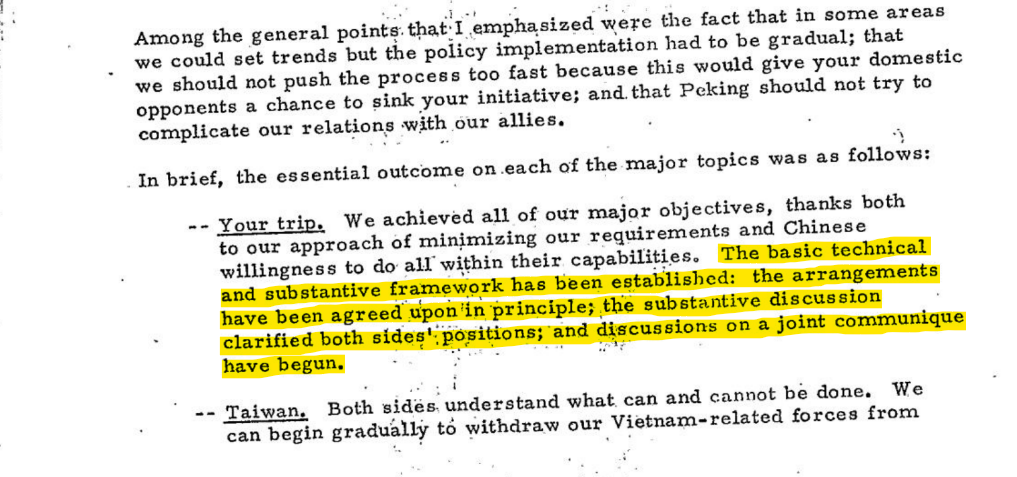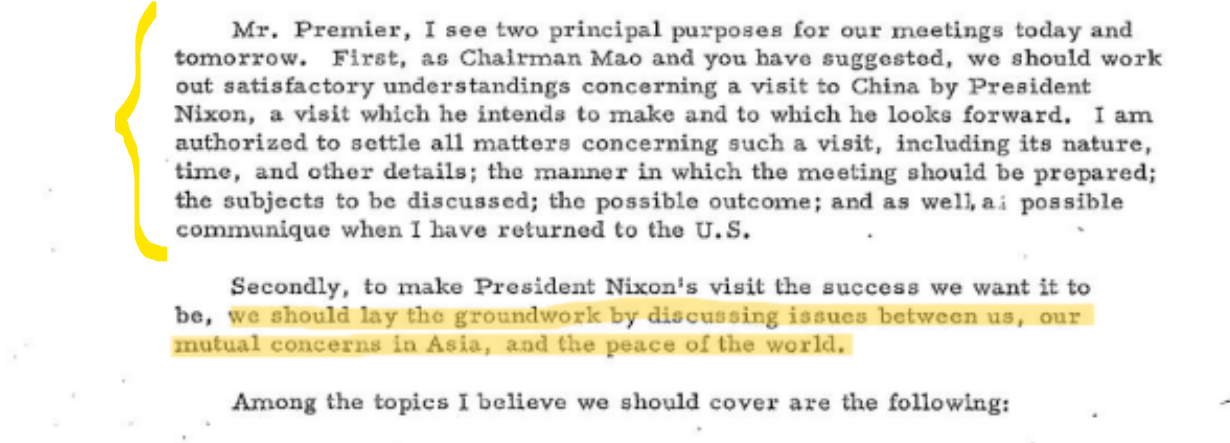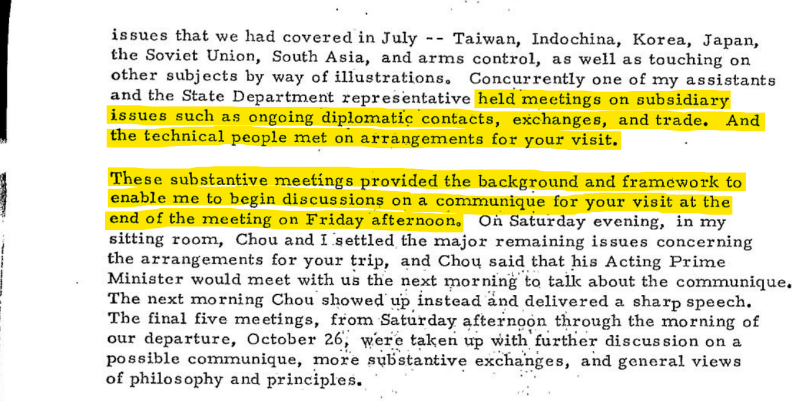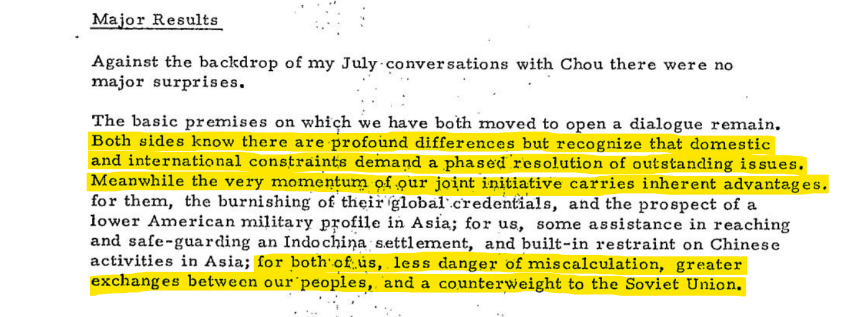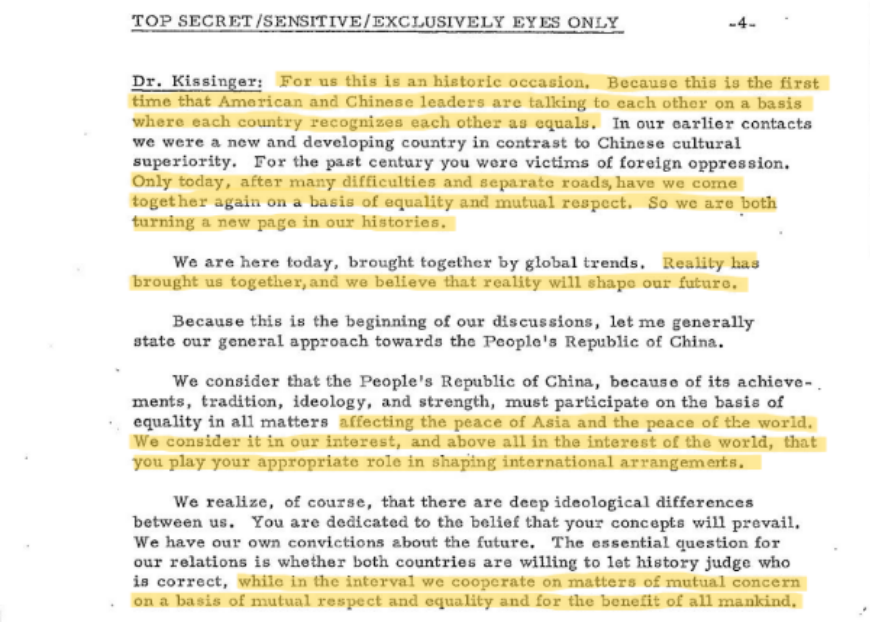Richard Nixon’s Visit to China: The Turning Point in Sino-American Relations that Forever Reshaped the Geopolitical Landscape of the World
Lifting Embargos

[Robert B. Semple Junior, The New York Times Archives, April 15, 1971]
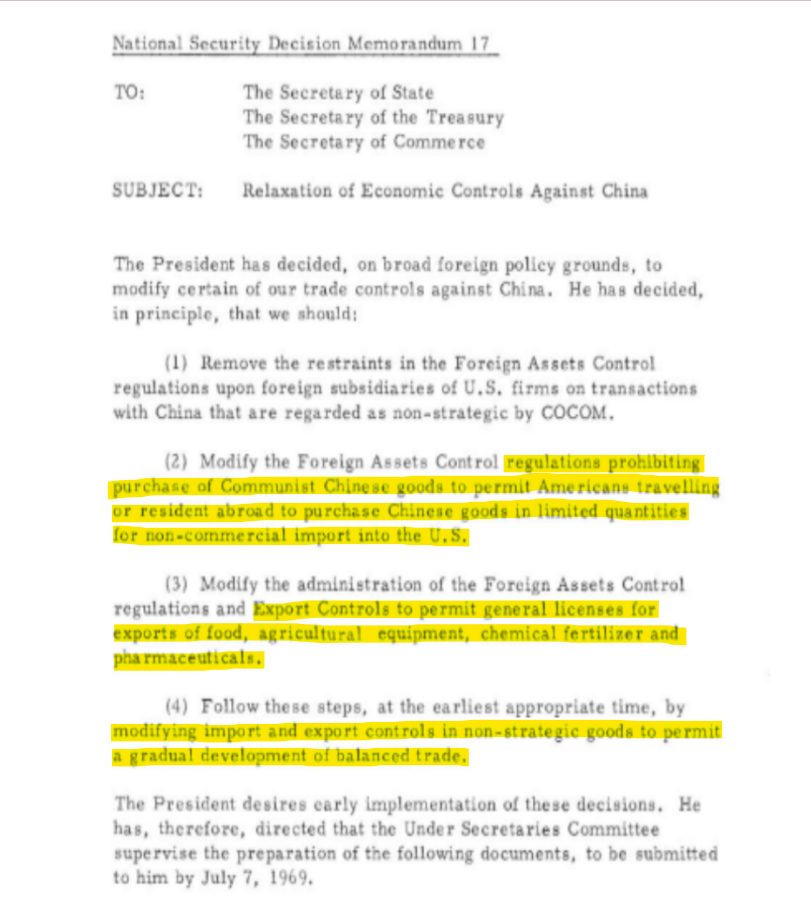
"National Security Decision Memorandum 17" Nixon Historical Research Center
From 1969 through 1971, President Nixon eased most trade and travel restrictions with China, as well as terminating the the U.S-China trade embargo.
“What we have done is simply opened the door – opened the door for travel, opened the door for trade.”
-President Nixon at his media conferences in Kansas
Lifting restrictions between American and China allowed for eased tensions between the two nations. This strategic move allowed for the start of communications.
“President Nixon looks upon these measures as a significant step to improve communications with a land of 800 million people after a 20‐year freeze in our relationships."
-Ronald L. Ziegler, White House press secretary
Mail-In Communications
From December 1970 through June 1971, letters were exchanged between Chinese Premier Zhou Enlai and Richard Nixon.
[Nixon Historical Research Center]
“It is certainly in our interest, and in the interest of peace and stability in Asia and the world, that we take what steps we can toward improved practical relations with Peking."
-Nixon's Foreign Policy Report to Congress, February, 1970
POLO I
While on a diplomatic trip to Pakistan, Henry Kissinger faked an illness and secretly flew to Beijing. This trip, known as “Operation Marco Polo” paved the way for Nixon's visit.
"The visit of Kissinger transformed the dynamics of international politics at that time and paved the way for the first visit of the US president to China and subsequent normalization of US-China ties.”
-Pakistani Ambassador to China, Moin ul Haque
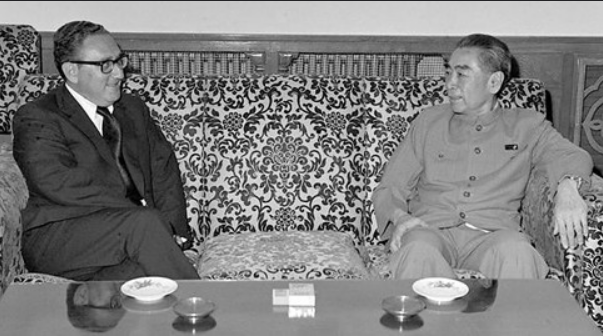
"In July of 1971, Premier Zhou Enlai met with Henry Kissinger, the National Security Advisor to U.S. President, who was on a secret mission to China. Both sides made a public announcement that the U.S. President Richard Nixon would be invited to visit China soon" China.org.cn
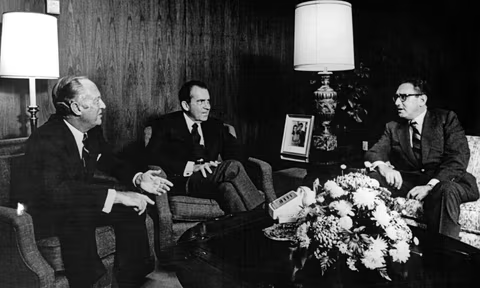
"Richard Nixon, centre, meets Henry Kissinger, right, and US Secretary of State William P Rogers, left. Kissinger was reporting to Nixon and Rogers about his secret trip to Beijing, China to meet with Zhou Enlai." REX/Shutterstock
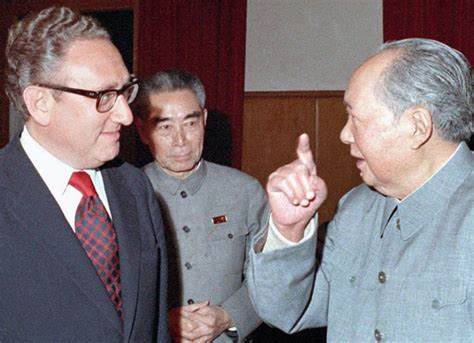
"U.S. national security adviser Henry Kissinger listens to Chinese Chairman Mao Zedong in Beijing, Nov. 1, 1971." Xinhua/ZUMA Press
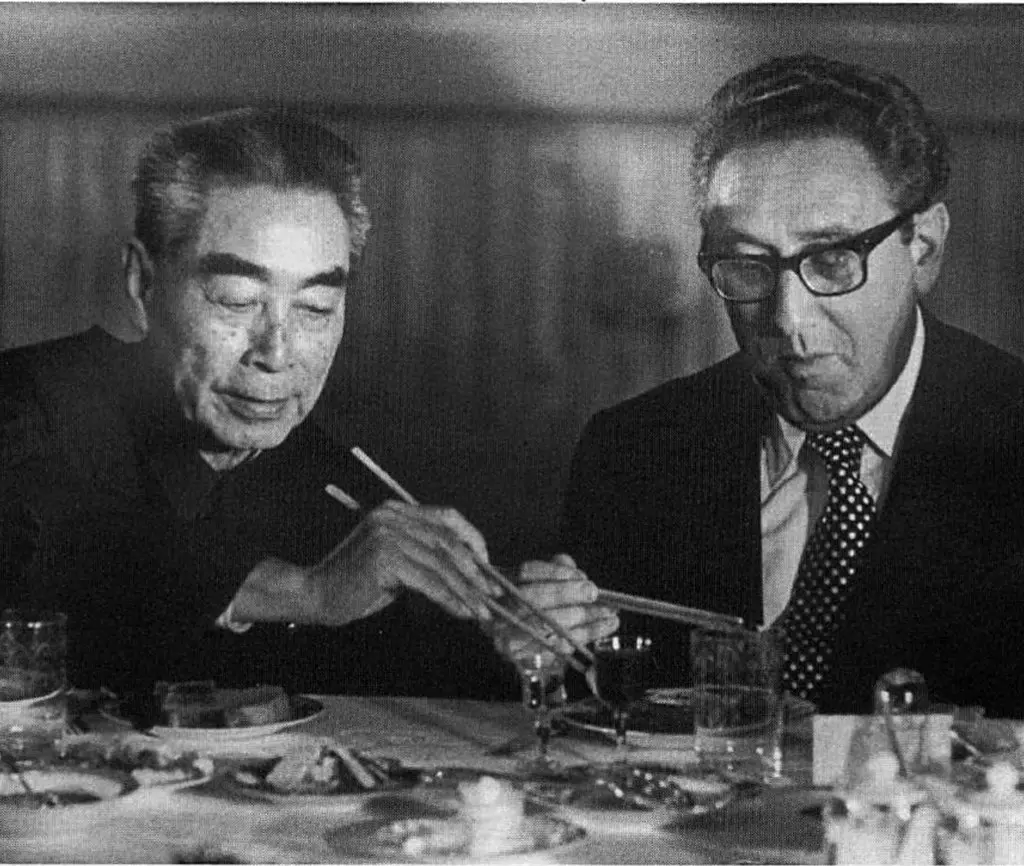
"Zhou Enlai, left, and Henry Kissinger in Beijing in 1971." Henry Kissinger Archives/Library of Congress
“Kissinger to Nixon, My October China Visit Discussions of the Issues, 11 November 1971.” Nixon Historical Research Center
Henry Kissinger’s trip laid the foundation for further diplomatic ties. These conversations would pave the way for one of the most beneficial diplomatic relationships in lasting decades, and laid the groundwork for the "Shanghai Communiqué.
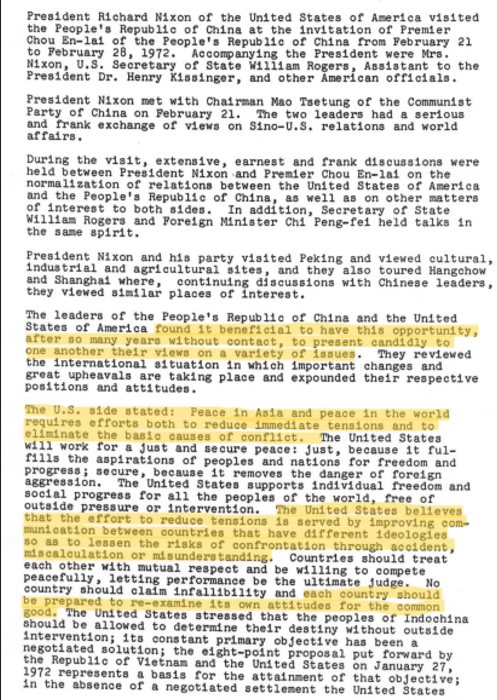
"Joint Communique, February 28, 1972, Shanghai, People's Republic of China"
The finished communiqué established the "One China Policy", where America recognized the PRC as the official government of China. The U.S would not recognize the Taiwanese government.
“I went on to say that I had been refreshed and invigorated by the Shanghai Joint Communiqué because it contained statements which outlined the differences between us, our political and social systems. However, there were also areas of agreement, and we could reach more agreement if we proceeded carefully and frankly. All too often people talked together and ignored their differences, and left them still in existence. In our case, I did not see the differences between our two countries as irreconcilable over the long run if we proceeded with patience.”
-Head of Liaison Officer, David Bruce, 1973
The Shanghai communiqué would normalize future diplomatic communications, and pave the way for peace.
“Having in mind the foregoing statements of both sides, the United States Government states that it does not seek to carry out a long-term policy of arms sales to Taiwan, that its arms sales to Taiwan will not exceed, either in qualitative or in quantitative terms, the level of those supplied in recent years since the establishment of diplomatic relations between the United States and China, and that it intends gradually to reduce its sale of arms to Taiwan, leading, over a period of time, to a final resolution.”
-Joint Communiqué on Arms Sales to Taiwan, August, 1982
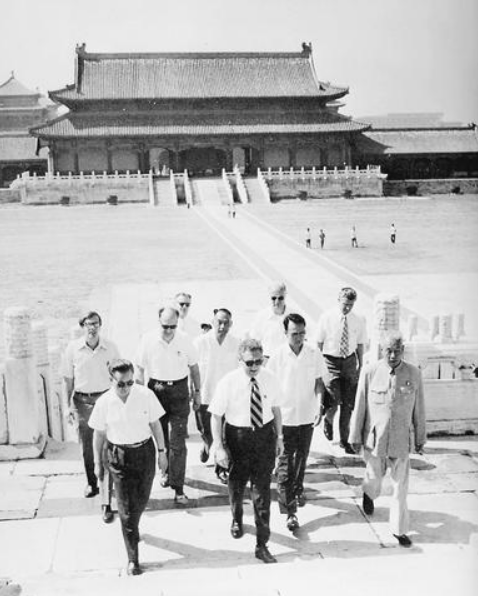
"US National Security Advisor Henry Kissinger tours the Forbidden City in Beijing with the US delegation during Kissinger's secret visit to Beijing in July 1971." The White House Years
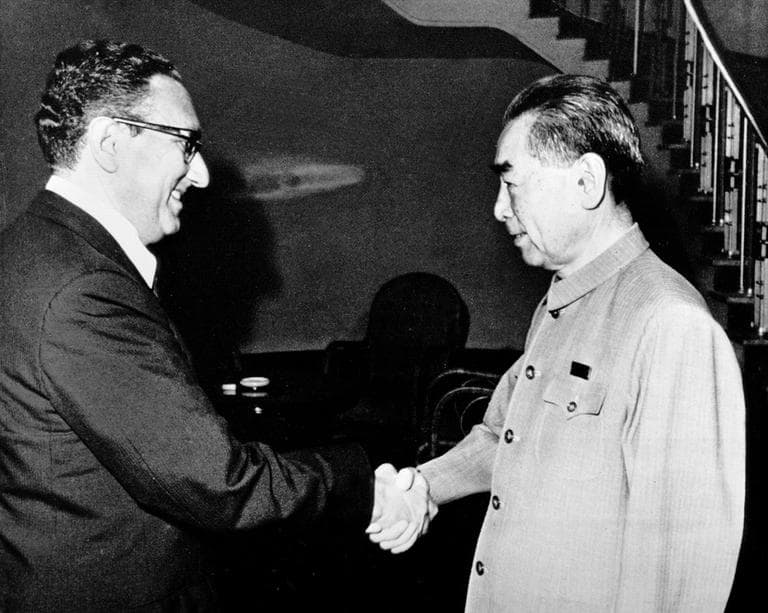
"US envoy Henry Kissinger shakes hands with Chinese premier Zhou Enlai in Beijing on a secret trip in July 1971 as Kissinger looked to establish relations." CONSOLIDATED NEWS/AFP/File
“It also defused tensions over Taiwan through US recognition that the island was part of China and that it was committed to withdraw military forces stationed there once the Communist and Nationalist Chinese had settled their differences peacefully.”
-Iwan Morgan, History Today
